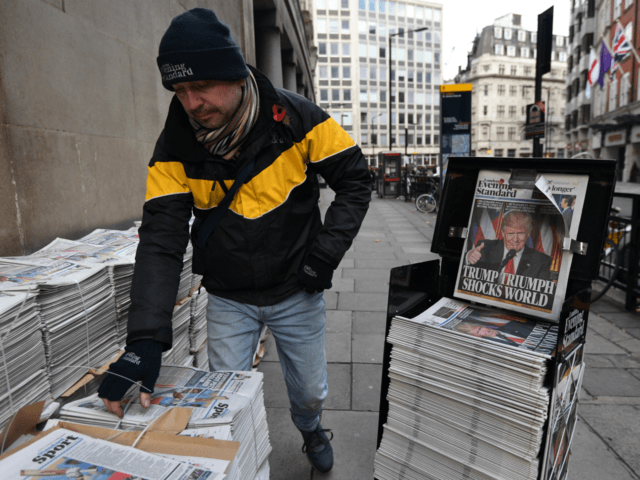MPs are set to vote this Wednesday on amendments to the ‘Data Protection Bill,’ advancing a Labour Party-pushed crackdown on press freedom, which critics say will silence small and online publications and usher in a “new dark age” in the media.
The proposed statutory inquiry into the media, a follow up to the Leveson inquiry, contains measures that will make it easier for the wealthy to suppress inconvenient stories and financially punish papers that don’t comply.
If realised, the Labour plan could end three hundreds years of relative press freedom in the UK, with papers forcibly regulated by a government-approved body set up after Leveson and so-far shunned by all major papers.
Liberal celebrities such as football pundit Gary Lineker and actor Hugh Grant have enthusiastically promoted the crackdown.
One element, known as ‘Section 40,’ aims to make publications pay for cases brought against them even if they are spurious and won by the paper. It has already been voted down by MPs, but was subsequently pursued in the House of Lords and recently reintroduced by Labour’s deputy leader Tom Watson as an amendment.
Responding to a 2016 public consultation into press freedom opened by the government, 79 per cent of the public said they did not want Section 40 and 66 per cent rejected the second press inquiry, known as ‘Leveson 2’.
However, Mr. Watson and his allies – notably former Labour leader Ed Miliband – claim the public and victims of the phone-hacking scandal want the measures.
Analysis by the News Media Association (NMA) has found that 85 per cent of local papers and the majority of online media are likely to be affected.
Small and new media publications with small resources will be hit hardest, as they could be brought down by one malicious case, and will be the first to be forced to sign up to regulation or shut down.
The NMA argues: “Legislation aimed at making our data protection laws fit for the digital age must not be used to enforce state-backed press regulation and obstruct investigative journalism.
“Setting up a costly and unnecessary, taxpayer-funded public inquiry into the whole media industry and introducing another punitive version of Section 40 costs sanctions against newspapers and magazines, would inflict huge damage on a free press.”
Media law expert Mark Stephens warned in a letter to The Times today that a “small and affluent privacy lobby” is trying to hijack data protection laws to harshly regulate newspapers.
“We are now seeing a new rash of data protection claims brought by those who would prefer not to see their names in the press,” he claims.
“Punishing some publishers with cost sanctions when they fight an increasing number of legal battles is taking us back to the Dark Ages.”

COMMENTS
Please let us know if you're having issues with commenting.